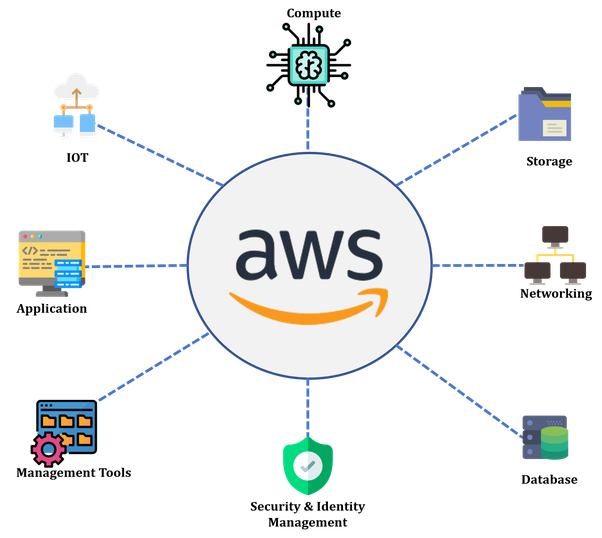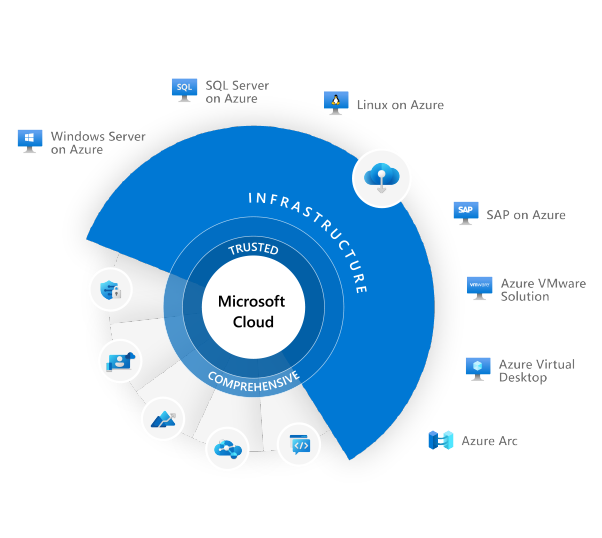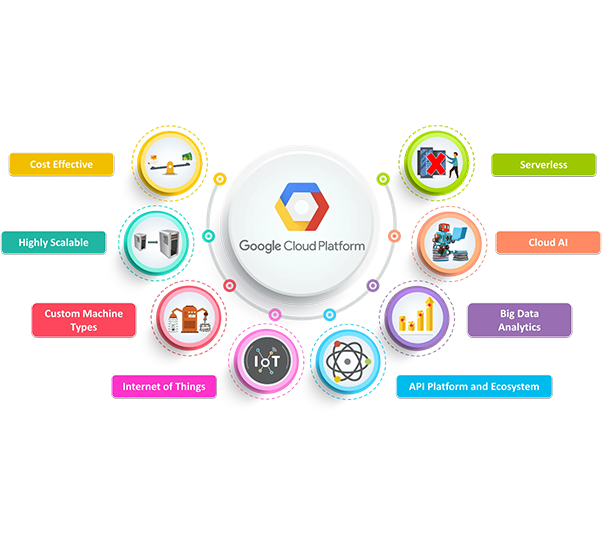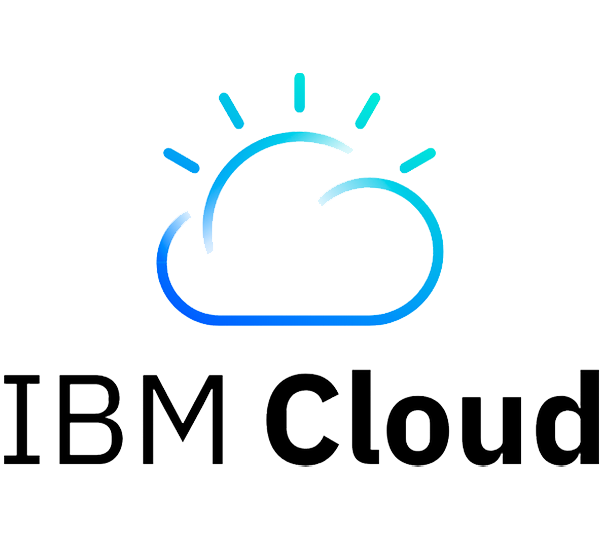
Cloud Computing

Revolutionize the way your business operates

Step into a world of efficiency, flexibility, and innovation



Are you looking to revolutionize the way your business operates and take it to new heights? Imagine a world where your data is accessible anytime, anywhere, securely and efficiently. That’s the power of cloud computing, and we’re here to show you why it’s the game-changer your business needs.
With cloud computing, you’ll no longer be tied down by the limitations of traditional on-premises IT infrastructure

Cloud computing refers to the delivery of various computing resources, such as storage, processing power, and software, over the internet. Instead of owning and maintaining physical hardware and software on-site, individuals and organizations can access and use these resources remotely through the internet, typically on a pay-as-you-go or subscription basis.
Popular cloud service providers include Amazon Web Services (AWS), Microsoft Azure, Google Cloud Platform (GCP), and others, which offer a wide range of cloud services to meet various computing needs.
Service Models
- Infrastructure as a Service (IaaS): Provides virtualized computing resources over the internet, such as virtual machines, storage, and networking components.
- Platform as a Service (PaaS): Offers a platform and environment for developers to build, deploy, and manage applications without worrying about the underlying infrastructure.
- Software as a Service (SaaS): Delivers fully functional software applications over the internet on a subscription basis. Users can access the software through a web browser.
Benefits of Cloud Computing
Here’s what cloud computing can do for you:
Scalability: Cloud computing offers unparalleled scalability. Whether your business is experiencing rapid growth or seasonal fluctuations, you can easily scale up or down your computing resources to match your needs. No more worrying about underutilized servers or unexpected capacity issues.
Cost Savings: Say goodbye to the heavy upfront investments in hardware and maintenance. Cloud computing operates on a pay-as-you-go model, meaning you only pay for the resources you actually use. This translates to significant cost savings, allowing you to redirect funds towards innovation and business growth.
Flexibility: Need to access your data or applications from different devices and locations? Cloud computing provides seamless access across devices and platforms, enabling your team to work collaboratively and efficiently, even remotely.
Reliability: Cloud service providers invest heavily in maintaining robust and reliable infrastructure. Your data is stored in state-of-the-art data centers with built-in redundancy and backup systems, ensuring that your critical business information is always protected and available.
Security: Cloud providers implement stringent security measures to safeguard your data. From encryption to multi-factor authentication, your information is shielded from unauthorized access and potential threats.
Innovation: Cloud computing opens doors to innovation. With access to cutting-edge tools, AI, and analytics, you can gain insights from your data, streamline operations, and make informed decisions that drive your business forward.
Speed and Agility: Launching new applications or services becomes faster and easier with cloud computing. Forget about lengthy setup times – you can have your new projects up and running within minutes.
Disaster Recovery: Natural disasters, hardware failures, or human errors can cripple businesses. With cloud computing, your data is securely backed up and can be quickly restored in case of any unforeseen events, minimizing downtime and disruption.
Environmental Impact: Cloud computing is more environmentally friendly than traditional IT infrastructure. It enables resource sharing, reducing energy consumption and carbon footprint.
Competitive Edge: Businesses that embrace cloud computing gain a competitive advantage. You’ll have the agility to respond to market changes faster, innovate quicker, and meet customer demands more effectively.
Providers

Amazon Web Services (AWS)
AWS is one of the largest and most widely used cloud platforms. It offers a vast array of services, including computing power, storage, databases, analytics, machine learning, and more.
- Strengths: Extensive service offerings, global data center presence, strong ecosystem and community, high scalability and reliability, advanced AI and machine learning capabilities.
- Considerations: Can be complex for newcomers, pricing structure might require careful management.

Microsoft Azure
Microsoft’s cloud platform, Azure, provides a wide range of services, including computing, analytics, storage, networking, and AI. It integrates well with Microsoft products and services.
- Strengths: Seamless integration with Microsoft products, strong hybrid cloud capabilities, comprehensive suite of enterprise tools, global data centers, strong security features.
- Considerations: User interface can be complex, certain services might require technical expertise.

Google Cloud Platform (GCP)
Google Cloud offers a suite of services including computing, storage, databases, analytics, and machine learning. It’s known for its data analytics and AI capabilities.
- Strengths: Advanced data analytics and machine learning services, strong data processing capabilities, global network infrastructure, strong developer tools.
- Considerations: Smaller market share compared to AWS and Azure, certain enterprise features might be less mature.

IBM Cloud
IBM Cloud provides a wide range of services, including infrastructure, AI, data analytics, and blockchain. It focuses on hybrid and multicloud environments.
- Strengths: Strong hybrid cloud and multicloud capabilities, comprehensive suite of services including AI and analytics, good for businesses with existing IBM solutions.
- Considerations: May have a steeper learning curve for beginners, might not have as large a service portfolio as some competitors.

Oracle Cloud
Oracle Cloud offers services including databases, applications, analytics, and AI. It’s aimed at businesses looking to migrate their Oracle-based applications.
- Strengths: Strong database offerings, suited for Oracle-based applications, strong security features, global data centers.
- Considerations: More specialized focus, might be less suited for businesses without existing Oracle products.

Alibaba Cloud
Alibaba Cloud is a leading cloud provider in Asia and offers a wide range of services including computing, data storage, AI, and analytics.
- Strengths: Strong presence in Asia, competitive pricing, diverse service offerings, good for businesses with a focus on the Asian market.
- Considerations: Smaller global presence compared to AWS, Azure, and GCP, might have less mature services in some areas.
These providers offer varying levels of services, pricing models, and geographic coverage. The choice between them depends on factors such as the specific needs of your business, existing technology stack, budget considerations, and geographic requirements. It’s advisable to assess your business’s requirements carefully and consider factors like ease of use, support, integration capabilities, and future scalability when selecting a cloud service provider.